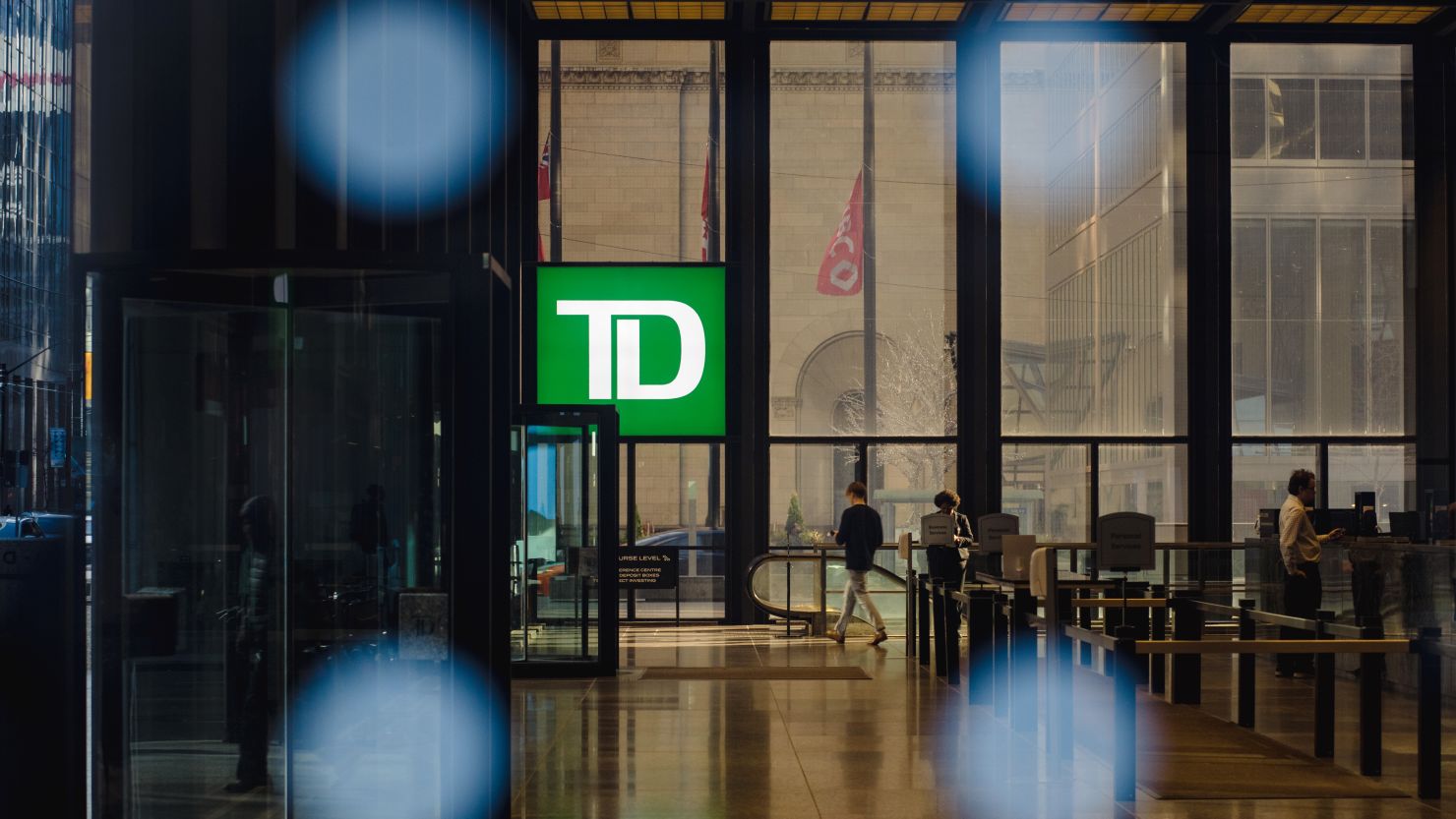A version of this story first appeared in CNN Business’ Before the Bell newsletter. Not a subscriber? You can sign up right here. You can listen to an audio version of the newsletter by clicking the same link.
It’s been a year since the collapse of Silicon Valley Bank and the US regional banking crisis that ensued. From a bird’s-eye view, not much has changed in the intervening period.
Inflation has come down but interest rates remain high and economic data is still coming in strong. Fears about the health of the real estate market, and a confusing economic landscape, leave commercial banks questioning what comes next.
Before the Bell spoke to Chris Giamo, head of commercial banking at TD Bank, about the health of American depositors and his overall outlook on economic growth and markets.
This interview has been edited for length and clarity.
Before the Bell: Employment data for February came in hotter than expected, but there was some weakness in wage growth and December and January numbers were both revised lower. Wall Street had a mixed reaction. But what does it mean for banks?
Chris Giamo: It’s a little bit of a mixed report. We are seeing a really tight labor market.
If I look at it from a commercial corporate banking perspective, I would say that business owners are cautiously optimistic in what’s been a tumultuous market. There’s still a belief that we’ll see a soft landing [where inflation eases but the economy remains strong].
The big thing for our clients is interest rates, and there’s cautious optimism that, though a lot of the data is conflicting, maybe June is when we’ll see a reduction in rates.
There tends to be this idea on Wall Street that good news is bad news. But how do main street bank customers interpret this data?
Depositors represent the main street economy, and small businesses are the largest employers in the United States. Right now they’re very focused on the high interest rate environment and inflationary pressures on them from a goods and services perspective.
They want to know when rates will moderate and when the Fed will start to ease. They’re also concerned about tax policy going forward, as we’re in an election year. So there are a lot of uncertainties out there. I think it’s connected to the major indexes.
In recent weeks we’ve seen economic growth estimates revised upwards and markets hit high after high. Do you think this can continue into the second half of 2024?
The economy has definitely demonstrated its resiliency, and a big part of that has to do with Covid, when the economy just came to a halt and small businesses had to reinvent themselves. The ones that got through it, whether that was through stimulus or reimagining how they engaged with and served clients, emerged out of that stronger.
That really proved that small businesses had to be forward-looking and conduct sensitivity analysis. But smaller companies don’t have large boards of directors like Fortune 500 companies do, so they really rely on their banks, accountants and attorneys.
We worked very closely with these businesses as they had to pivot and reinvent themselves. So I think that’s what’s driving some of the resiliency and productivity coming out of Covid. But rates did go up quickly and quite substantially. And as they moderate a bit, that’ll be important for some of these businesses.
It’s been a year since the regional banking crisis. The macroeconomic climate is still tough for a lot of commercial banks. How do you evaluate the landscape?
I think the banking system is fundamentally strong. There’s obviously pockets of weakness within the marketplace, but TD is one of the most well-capitalized banks in the world.
We’re keeping a close eye on the real estate market. The commercial real estate market is definitely under some pressure because of the rising rate environment.
Values have come down, and certain segments of it, like office space, are weaker than others. So I think banks are watching all that closely and working closely with regulators.
How long do you think commercial real estate woes will weigh on banks?
It definitely persists, and it depends on the banks’ weighting of real estate as a percentage of their portfolio. In a down market, you definitely have to reserve more capital against those types of assets. That will continue to weigh more heavily on certain banks or financial institutions that are overweight on commercial real estate or maybe don’t have the capital.
Have you had to work to reassure your customers about the health of TD?
We talk with our clients all the time about the economic environment and use that as an opportunity to let them know how we’re positioned.
I think the pandemic really drove a lot of this. In the past, certain businesses would have looked at banking as a commodity. But I think they recognized during that period of time that it was really important to have a strong relationship with your bank.
We were one of the largest participants in the Paycheck Protection Program, which was a lifeline for many small businesses. At that point, people didn’t know when the money was going to run out, it was almost a race to the finish line. I think that’s when businesses realized, ‘I don’t want to call a 1-800 number for that and I don’t want to just send an email to a blind inbox. I want to pick up the phone and call a banker who I trust, who can hold my hand through that process.’
That’s become an important piece for business owners going forward. They need to strengthen the communications between their company and financial service providers.
US government calls for insurance companies to make advanced payments following cyberattack disruption
The US government on Sunday urged insurance companies to make advanced payments to health care providers following a cyberattack that disrupted insurance processing systems, reports my colleague Philip Wang.
The cyberattack had “significant impact” on Change Healthcare, a unit of health IT giant UnitedHealth Group, which processes 15 billion health care transactions annually. CNN previously reported that the cyberattack has resulted in pharmacies and hospitals unable to process prescription bills across the country.
“We are asking private sector leaders across the health care industry — especially other payers — to meet the moment,” Health and Human Services Secretary Xavier Becerra and Acting Labor Secretary Julie Su wrote in a letter.
The two specifically called on UnitedHealth Group to “ensure no provider is compromised by their cash flow challenges” through expedited delivery of advanced payment and more frequent communication.
The Body Shop shuts down all US operations, closes dozens of stores in Canada
The Body Shop has shut down all of its US-based operations and will be closing dozens of Canadian store locations as it files for bankruptcy, reports my colleague Eva Rothenberg.
In a news release earlier this month, the UK-based cosmetics company announced that its US subsidiary is no longer operational, effective March 1. It added that 33 of its 105 stores in Canada will begin liquidation sales immediately and “online sales via Canada’s ecommerce store will stop,” but that all Canadian locations will remain open for the time being.
High inflation in recent years has hurt traditional retailers, particularly those like The Body Shop that predominantly operated out of malls and were aimed at the struggling middle class.









